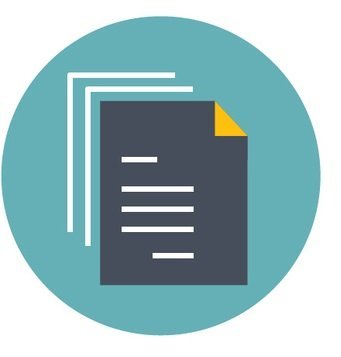Leaderboard
Popular Content
Showing content with the highest reputation since 14/12/18 in all areas
-

Why you DO NOT need to sound like a native English speaker!
Fabi Severo and 3 others reacted to Minoo for a blog entry
These days, I see too many English language students wanting to sound like a native English speaker. They feel they need to speak with a specific native English accent while using many idiomatic expressions. This is a hugely ambitious goal for someone who was not exposed to the English language before they were two or three years old. In my own case, I started learning English at the age of six, and although I’ve been speaking and teaching English every day for the past 37 years, I still don’t sound like a native English speaker. So, if you know someone who has achieved this goal as an adult learner, then they’re a genius! For most of us, however, this is a rather pointless and disempowering goal. Why is this a pointless goal? I can think of four reasons: a) When it comes to communicating with others, accent is irrelevant. Whether we sound British, American, Italian, or Chinese, what really matters is how easily others understand us. b) Good speakers and writers avoid using too many idiomatic expressions and complex structures. They keep their language short and simple. c) English grammar is even difficult for natives to master. As a proofreader, I regularly correct and improve native speakers’ poorly written English. d) Out of the 1.5 billion English speakers worldwide, only 25% are native. If, for the sake of facilitating communication, one group had to change the way they spoke, it would logically be the natives. Why is no-one asking them to lose their regional accents and limit their vocabulary to the 5000 words that are sufficient to communicate in most situations? Why is it a disempowering goal? Our voice and the way we speak is a fundamental part of our personal and cultural identity. If we feel that we must change this important aspect of our identity in order to succeed in life, we’re really telling ourselves: ‘I’m not good enough! I must become someone else, or pretend that I am someone else.’ This negative self-image can generate feelings of lack, inferiority, and envy that disempower us. Even if we work with the most brilliant voice coach to change our accent and memorise the whole of the English idioms dictionary, this ‘I’m not good enough’ belief will result in failure. Loss of self-belief and self-confidence is a huge price to pay for a goal that, as I argued above, is totally pointless. What’s a better goal? Instead of wanting to sound like someone else when we speak English, let’s focus our efforts on sounding like our unique self who speaks with a clear pronunciation and uses simple and correct language. Just imagine for a moment how much less stressful and more motivating this goal can be! Also, put yourself in the shoes of the people you interact with in English, both native and non-native. Don’t you think they love the fact that they can understand you easily and interact with you comfortably? Or, do you imagine that they think less of you because you don’t speak like someone from Melbourne, Dublin, or Texas? I’d love to read your thoughts and stories in the comments section.4 points -
Happy New Year
serg59 and 3 others reacted to Chary for a topic
Well said Minoo. I wish you all a very happy new year.4 points -

Happy New Year
Tom and 3 others reacted to Minoo for a topic
A very Happy New Year to you too, Sergey! I couldn't agree more: The greatest joy comes from learning and discovering new things. If we were perfect, life would become extremely dull. Thank you for your great contribution to the forums in 2018. I hope you will keep it up in 2019.4 points -
future simple questions
Minoo and 2 others reacted to suresh s for a topic
"I am finished" and "I have finished" have similar meanings, but they are not exactly the same. "I am finished" describes a current state or condition and It emphasizes the result or outcome of the action rather than the action itself. whereas "I have finished" describes a completed action in the past, It emphasizes the action that was completed rather than the result or outcome.3 points -

Essay writing tips tutorial
Roman_R and 2 others reacted to Minoo for a topic
Dear all, This is to let you know that the tutorial has just been released on my YT channel. It will soon be published in the 'tutorial' section of the 'video lessons' on the platform. If you would like to watch it straight away, go to this link: https://youtu.be/mXrqCJ2hvI0 I hope you enjoy it.3 points -

Why you DO NOT need to sound like a native English speaker!
Fabi Severo and 2 others reacted to Omar Karakhan for a blog entry
Hello Head Tutor, Minoo. I totally agree with you.The main thing is that people understand us, and we understand them. Keep it simple! Regards, Omar3 points -
Essay writing tips tutorial
Samuel Ashenafi and 2 others reacted to eddy andrianasolo for a topic
Hello, Thank you for the tips I will try to do that. Eddy3 points -

It's not my cup of tea.
serg59 and 2 others reacted to Minoo for a topic
Phil has given us the right answer: The common expressions in English are right up my street / right up my alley. However, as I am impressed, Hari and Sergey, with your creativity, and as you are always active on the forums, you'll get some free credits too!3 points -
Happy New Year
Tom and 2 others reacted to serg59 for a topic
Happy New Year to every Anglo-Linker! Let all our troubles be gone in 2019, forgive yourself for not being perfect in English, keep learning and be happy!3 points -
Happy New Year
Minoo and 2 others reacted to PHIL73 for a topic
Hello there, I would like to give everyone all my best wishes for the new year! Many beautiful things in the year to come ... (and a lot of improvement in English language of course )3 points -

Grammar challenge
serg59 and 2 others reacted to Minoo for a topic
Thank you all for participating in the challenge. The correct answer is the first one: Neither of them knows the other one's name. The points to remember here are: 'Neither of them' can be followed by either a singular verb (knows) or a plural verb (know). the other one's name (singular) - the others' names (plural) - Here, we're looking for the singular construction.3 points -
Grammar (B1+): Past Tenses
BranislavNS and one other reacted to Duris for a file
A very big thank you to you Minoo for having sent me this lesson. As usual, your explanations are cristal clear, you need a gold medal being the best English teacher in the world. I'm serious. I studied this lesson thoroughly and I made only two mistakes at the quiz. That's too many but I am going to do this quiz again.2 points -

Differences Angry-Annoyed-Upset ?
JesusArgentina and one other reacted to Minoo for a topic
Hello Jesus, All three adjectives can be used, but I would use 'angry' because it's the strongest and matches the word 'demand' better. The other two are weaker: annoyed = slightly angry upset = unhappy, disappointed2 points -

How acted Irregular Plural in the sentence?
Doina Becheru and one other reacted to Minoo for a topic
Hello Jesus, Thank you for your question, which we covered in yesterday's LIVE Q&A session. To recap: When 'people' is the plural of 'person', you must use a plural verb: These people are .... When 'people' is a synonym for 'ethnic group', then it is a countable noun, and you can say 'a people' (+ singular verb) and 'peoples' (+ plural verb). This second meaning is not commonly used. So, consider 'people' to be plural 99% of the time.2 points -

Word order: Where to put 'again'?
bozkan and one other reacted to Minoo for a topic
The ‘WHAT’ part includes verb + direct object + indirect object, and we must keep these three elements together. In this case, the direct object is the question and the indirect object is for you. That’s why ‘again’ (an adverb) has come after ‘for you’. Here’s another example from Collins Dictionary: I started to feel good about myself again. You may come across examples where the indirect object has been separated from the verb, but make sure you never separate the direct object from the verb.2 points -

Live workshop
bozkan and one other reacted to Minoo for a topic
Hello Mathias, An excellent question! Here's a description of each type of workshop: Sunday workshops: They involve listening to and speaking with your peers, and typing sentences in the chat box in reply to my questions. One week: Grammar Review & Practice I'm attaching the worksheet from our last session on 15th January. You receive this before the session + the link to the online lesson that we will be revising. You can revise that lesson and do the exercises before the session, or you can come unprepared to test yourself and revise the lesson after the session. In the first part of the session, you partner up with one of your peers in a breakout room, and you do the exercises together. So, in this part you're revising a topic while discussing it with another student. In the second part of the session, I take the whole group through the exercises one by one. Here, you will be listening mainly to me, and occasionally answering a question from me in the chat box. The following week: Conversation Practice (occasionally changed to pronunciation practice) I'm attaching the worksheet from our last session on 22nd January. You can prepare your questions and/or your answers before the session, or you can come unprepared if you want to speak spontaneously. In the first part of the session, you partner up with one of your peers in a breakout room. You ask each other the questions and make a note of each other's answers. In the second part of the session, you share the information you've gathered from your partner with the whole group, speaking for 1-2 minutes. Your partner shares the information he/she has gathered from you with the whole group. NEW Saturday Q&A sessions starting 18th March 2023: hey involve mainly listening to me answering questions posted in the Forum, but you can ask questions live as well. You can post any questions you have in the Q&A Forum in four categories: Grammar, Pronunciation, Vocabulary, and General. You can answer your peers' questions in the Forum (the best way to reinforce your own learning). I choose the best questions from different categories every week and answer them in detail in our Saturday Q&A session. We end each session with a quiz to see how well you remember the different points covered. Don't hesitate to continue this thread if you have any follow-up questions on what I've explained above. 47 Conversation Cars - 22 January 23.pdf 46 Negative words -15 January 23.pdf2 points -

VIDEO DICTIONARY - THE FARM PART2
Samuel Ashenafi and one other reacted to Rodolfo Marttos for a topic
Hi friends! This is my Video Dictionary – The Farm Part2. I’ll try to publish one vídeo every week. I hope that you appreciate! Thank you! ? THE_FARM2_v2.mp42 points -

VIDEO DICTIONARY - BABY THINGS
Samuel Ashenafi and one other reacted to Rodolfo Marttos for a topic
Hi friends! This is my Video Dictionary – Baby Things. I’ll try to publish one vídeo every week. I hope that you appreciate! Thank you! VIDEO_BABY.mp42 points -

Disappointed
Ann Yan and one other reacted to Minoo for a topic
Hello Kyoko, It seems that Hari tried to reply to your question, but we can't see what he wrote. The tense you must choose here is the Present Simple, because we're stating a fact: They never HEAR from .... except when he NEEDS .... I hope this clarifies it for you. Happy continuation, and I look forward to hearing form you on the results of the strategies we discussed during our one-to-one session lat week.2 points -

Conditional
rasha j and one other reacted to Minoo for a topic
Hello Rasha, Thank you very much for your support. I'm glad you like my website. You raise a very interesting point, and you're right that occasionally we may see 'will' in the 'if' clause. That's usually when we're using 'will' to show someone's willingness to do / not to something: A: I will not speak to him. B: O.k. If you won't (are not willing to) speak to him, I will do it. In your sentence, too, you can replace 'won't by 'be willing to': If you are not willing to have something done on time, be clear about it.2 points -

Let your hair down.
LilianC and one other reacted to Bernard M for a topic
Hello, perhaps ... He needs to pull his socks up2 points -

Adjectives and adverbs
Ann Yan and one other reacted to Minoo for a topic
Hello Hari, Assuming your question is about expanding our repertoire of such words (and not how to use them grammatically correctly), I would recommend reading novels as a way of enlarging your repertoire. It is the descriptive texts in novels that will be full of adjectives and adverbs. However, I would suggest that you choose simplified graded novels where you will find common and frequently used adjectives and adverbs that you can use in your own speaking and writing. There are two good series you can choose novels from: - Macmillan Readers - Oxford Bookworms And remember, as I recommend for any type of vocabulary building exercise: 1. Write down a phrase or a sentence that contains the word you're learning, not (just) the translation. 2. Check and learn the pronunciation of the new word in an online dictionary or use the audio version of the same book to hear all of it including the new words.2 points -

Possessive 's'
rasha j and one other reacted to Minoo for a topic
Hello Leonardo, Thank you for your question. To clarify: 1. Yes, we use a possessive 's' for comments made by the colleagues because, in a sense, what is made by someone 'belongs' to them, e.g. Newton's laws. Here the apostrophe comes after the plural 's': ... colleagues' comments. 2. 'movie' is inanimate; therefore it would be better to say: the name of the movie. However, in modern English, this rule is not always followed, so you may also hear 'the movie's name'. I recommend you stick to the rule to be on the safe side.2 points -

Question words - how long
PHIL73 and one other reacted to Bernard M for a topic
Thanks a lot to both of you.2 points -

Essay writing Tips: apologies for the delay
amiraabdulaziz1280 and one other reacted to Minoo for a topic
My apologies to those of you who have voted for and have been waiting for my lesson on essay writing. In preparing the lesson 'Tips on Essay Writing', I realised that it was better to present it in a 'tutorial' rather than a 'lesson' format. I have recorded my presentation, but tutorial type videos need to be animated / illustrated, and we're currently waiting for that to be done before we can release it. As soon as it's been released, I'll post the link to it in this forum. Thank you for your patience. Best wishes, Minoo2 points -

Grammar challenge 3
Ann Yan and one other reacted to Minoo for a topic
Thank you everyone for participating in this challenge, which was slightly trickier than the previous two. The first point, as Butterfly55 has explained, is that 'anyone' is used with a singular verb. The trickier point is that if you need a pronoun or a possessive adjective to accompany 'anyone', 'everyone', etc., you should either use his/her & him/her, which is heavy, or use the 'genderless they'. So, the correct answer is: Has anyone brought their laptop with them? Well done if you got it right, but don't worry if you didn't. The purpose of the challenge is to make you aware of these tricky points.2 points -
Hello, have you ever studied with flash cards?? They are very useful for reviewing for exams! The best free software is ANKI because it supports images, audio and video. You could create some flash cards where you have to type the answers. There are a lot of video tutorials in English: I've attached one, just to give you an idea. You should check it out. Trust me. Not only for languages.2 points
-

Happy New Year
PHIL73 and one other reacted to Minoo for a topic
My best wishes for a great 2019 to you, Phil! I really appreciate your keen participation in the forums, particularly your very good answers to your peers' language questions. I'm looking forward to your continued valuable contributions this year.2 points -
Put the cat among the pigeons
Minoo and one other reacted to PHIL73 for a topic
Hello Minoo, I think it could be this: "Her open criticism of the CEO has stirred up the hornet's nest".2 points -
to be wide awake
Tom and one other reacted to pratapses1 for a topic
Thanks for such a nice expression for today2 points -

to be wide awake
PHIL73 and one other reacted to Minoo for a topic
Hello Phil and Sergey, Well done again for a good team effort!2 points -

How to build vocabulary ?
Vijaymit and one other reacted to Minoo for a topic
Thank you for your contribution, Pier. Indeed, it is great to use movies and songs that you like to learn new expressions. I would like to add a couple of suggestions: Choose movies you have already seen in your mother tongue and really liked, and watch them three or four times, first with English subtitles, and then two or three more times without subtitles with one or two weeks between each viewing. You will be amazed at how much more you understand each time even without subtitles. Remember that if you have the subtitles on all the time, your listening comprehension does not improve as much, so limit the subtitles only to the first time you watch a movie. Same goes for your favourite songs. Learn the lyrics (with some translation if necessary), and then listen to them again and again, and sing along with them.2 points -

Welcome to your brand new site!
alexzapad and one other reacted to Minoo for a topic
Thank you very much for your positive feedback. We're delighted that you like the site, and hope you will enjoy using it.2 points -

Easily confused words 1
Leliuss reacted to Minoo for a file
Version 1.0.0
27 downloads
In this lesson, we review some words that are often confused with each other, such as economic and economical, or politics and policy. 1. Download the PDF and read the explanations, and/or watch the live lesson here. 2. Take the quiz to test yourself. In LIVE sessions, we go through the correct answers together after you've done the quiz on your own. This is the fastest and most effective way of fully understanding and activating a topic. So, do try to join the live sessions when you can.Free1 point -

Tenses in Questions
Minoo reacted to Nana85 for a topic
Hello Minioo, thank you so much for your very detailed information to my questions. It helpt me quiet a bit to clear things up for me. I will watch the two lessons you recommended to this topic as well and if I still have questions after that, I will ask you in comming up Video lessons. Thanks again and have a good rest of the week. With best regards Nana1 point -

Too and Two
Doina Becheru reacted to Minoo for a topic
Hello Jesus, Thank you for your question. No, there isn't one single word that can replace 'two too'. But, because they're both pronounced in exactly the same way, and it's phonetically awkward to say 'two too', it's best to use a synonym of 'too' instead: I'd also like two. I'd like two as well.1 point -

Of vs Off
Minoo reacted to Doina Becheru for a topic
Hello Minoo, Please explain to us when to use 'of ' vs 'off'. Thank you!1 point -

Essay writing tips tutorial
faroukab reacted to Minoo for a topic
Hello Nawal, Simply go to your study plan at https://app.anglo-link.com/ and start with lesson 1 in week 1. The lessons in the Elementary level are easy, but they are very important to review. Also, make sure you read the 'Welcome & Tips' email I have sent you to know how to study effectively. Happy studies!1 point -

conditionals
Luca Nicola reacted to Minoo for a topic
Hello Luca, The correct answers are: If she didn't have ... When 'have' is the main verb, use an auxiliary with it. ......, he would have taken .... The structure is correct, but it is not negative.1 point -

passive sentences
Luca Nicola reacted to Minoo for a topic
Hello Luca, 1. Your answer is also correct, but, if you check the instruction in the test again, it says: If there are two objects, use the person(s) in object position. This is because I want you to practise putting the person in object position, which is common in English. 2. Yes, the mistake is in the participle: wake - woke - woken.1 point -

When can we use ‘being’
Hieu Pham reacted to Tom for a topic
Hi Folks A new exclusive video is available. Check it out now: When can we use ‘being’. Although 'be' is a state verb and can never take a Continuous tense, we often see and hear the word 'being'. In this lesson, we're going to look at the uses of 'being': When 'be' means 'behave' In Passive Structures As a Gerund1 point -

Present perfect vs present perfect continuous.
viral patel reacted to Minoo for a topic
Hello Viral, Thank you for your question. These tenses are difficult to get right every time because of the differences between British and American English. Let me answer according to strict British English rules. These will help you in your own usage, but do not be surprised if you hear 'ungrammatical' usage in movies and informal conversations. Your four answers to the question 'What have you done today?' are all possible, but let me add some notes: 1) I have played tennis. ( ... and I've done X, and I've done Y) - This is the best answer: telling them the different things you have done. 2) I have played tennis for 2 hours. - Correct grammatically, but again, you should mention the other things you've done. If you only want to talk about playing tennis, then it's best to put it in a past time frame: I went to the club at 9 o'clock and played tennis with Jim for two hours. 3) I had played tennis for 2 hours before friend A visited me. - See 4) using the Past Perfect instead of Perfect Continuous is acceptable here. 4) I had been playing tennis for 2 hours before friend A visited me. - As with 2), if you want to be detailed, introduce a time frame: Friend A visited me at 11. I had been playing ...... To answer your other question: While it is o.k. to replace Past Perfect Continuous with Past Perfect (because native speakers tend to do it in daily usage), it is not o.k. to replace Present Perfect Continuous with 'for' and 'since' with Present Perfect when talking about short-term actions. So, avoid saying 'It has rained for two hours / since 9 a.m. Say: 'It has been raining for two hours / since 9 a.m. I hope this answers your question.1 point -
which tense is appropriate?
Ann Yan reacted to Chary for a topic
In my opinion: 1. Somebody was being in my home when I was at office (past continuous instead of past perfect because two action are simultaneously occurring, additional I used passive voice as the person is not known, somebody). 2. It looks like somebody is in my home ( present simple instead of present perfect, based on your scenario 1, as there is no time frame to show continuity). 3. Firstly, we mustn't use 'being' after 'be' since it sounds awkward. Therefore, somebody was in my home, would be more appropriate. In all the three circumstances I used 'past simple' instead of 'present simple' as past simple is more appropriate for your scenario 1. I have posted the above as far as my knowledge. Please correct me if I'm wrong. Regards, Hari Kiran1 point -

Everybody smile!
Minoo reacted to Bernard M for a topic
Hello Minoo, Thank you for your explanation. I understood now!1 point -
does anyone can help me with this exercise?
Minoo reacted to Vivsha for a topic
I also had the same problem. now it's fixed. Thanks Minoo.1 point -
1 point
-
Exam
PHIL73 reacted to serg59 for a topic
Sorry for my irrelevant meddling but I can't stop singing this song: "I woke up this morning and got myself a beer, the future's uncertain and the end is always near". Sorry, excuse me, I tiptoed out.1 point -

Noums
yomnaayman330 reacted to Minoo for a topic
Hello Robledo, When choosing between 'a' and 'an', think about the sound, not the letter. Compare the pronunciation of 'university' with 'umbrella'. They're not the same, right? The 'u' in 'university' sounds like a 'y' (phonetic alphabet: /j/). This is not a vowel sound, so: a yo-yo, a young man, a yellow bag , a university. The 'u' in 'umbrella' is a vowel sound, so: an umbrella.1 point -

to be wide awake
serg59 reacted to Minoo for a topic
This expression means to be 'fully awake': It was 3 a.m., and I was still wide awake thinking about what had happened that evening. There are two common ways of expressing the opposite, i.e. being 'fully asleep': It was 3 a.m. and everyone was ................. asleep. It was 3 a.m. and everyone was ............... for the .................... ANSWERS: sound / fast asleep & out for the count1 point -

December 2018 Topics
Tom reacted to Manuel Muchanga for a topic
Hello Making and changing formal arragements is an interesting topic1 point













